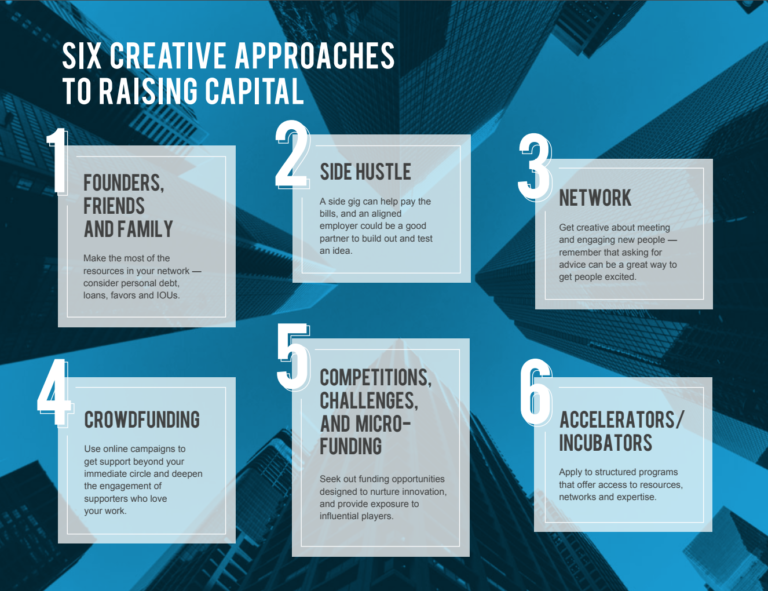Best Practices for Supporting Civic Tech Entrepreneurs
Published
In the categories:
- For Investors
- For Startups

It can feel like dark days sometimes for our democracy. The work of entrepreneurs and activists building and fighting to make our democracy healthier and more representative is critically important. And for those of us who fund these change agents, it is incumbent on us to ensure that we’re being as effective as possible in providing the support these folks need to be resilient and impactful in this deeply challenging work.
This past spring, the MacArthur Foundation supported New Media Ventures in undertaking a deep dive to understand today’s best practices for supporting civic tech and participatory media entrepreneurs. Kyla Fullenwider, then a fellow at the Harvard Kennedy School, and I, Laura Weidman Powers, the Entrepreneur in Residence at New Media Ventures, set out to answer this question for NMV.
Funders and conveners with a broad view of innovation in the space are well positioned to impact not just their own portfolio but the field more broadly and should undertake to do so in order to create fertile grounds for civic startups to thrive.
In order to ensure that our endeavor would be practical and impactful, we structured our undertaking to answer three key questions:
What are today’s best practices for supporting civic tech entrepreneurs?
What is missing in the field or where might additional effort be particularly impactful?
What is NMV as an organization best equipped to do or provide?
While the report goes into much more depth in answering all three of those questions, we wanted to share the high level learnings here so others can benefit from our work.
We started by answering questions one and two. Through analysis of the trends that surfaced in the research, we determined that the most salient recommendations for how funders could or should act to be effective in supporting civic tech entrepreneurs fell into six categories: 1) Leadership development 2) Network development 3) Access to capital 4) Measuring success 5) Increasing equity 6) Field building.
Our insights included:
Leadership: Intentional leadership development for a venture’s entire senior team is important for building resiliency within and across a young organization, and for cultivating the field as a whole. Funders should strive to support the creation of “leaderful” organizations rather than reinforcing the hero myth of the sole valuable leader (usually the founder or CEO).
Network development: Robust networks and social capital enable the power, access, and influence that are essential for entrepreneurial success. Yet not all entrepreneurs possess the type of connections and access needed when they start their venture. Funders should open their networks to civic entrepreneurs and use their convening power to connect founders to funders and other types of partners and supporters who can accelerate their business and boost their resiliency.
Access to capital: A lack of access to early stage and follow on funding can devastate an otherwise promising idea or model. In addition, many minority- and women-owned startups are systematically undercapitalized and consequently more vulnerable to failure. Funders should place bets on early stage enterprises and not be afraid to double down with follow-on funding to ensure sufficient runways for learning and experimentation.
Measuring success: Measuring success in ways that are both meaningful and adaptive is critical for true movement building and the creation of systemic change – traditional metrics don’t always show what’s happening in the bigger picture. Further, new approaches to metrics are required to address damaging and distracting power inequities between funders and founders. Funders should be flexible around how they expect portfolio companies to measure success and should be willing to pivot to new metrics as long as impact is being had and lessons are being learned and shared along the way.
Increasing equity: There are a number of systemic and structural barriers that are unique to women and to communities of color that must be addressed through a broad range of equity-enhancing interventions. All field-building and portfolio-specific activities should be analyzed through an equity lens, which may mean proportionally overinvesting in historically marginalized groups more directly affected by the problems we seek to solve.
Across all these areas it’s critical to note that systems-level interventions (not just initiatives for individual entrepreneurs) are required to catalyze and support a robust, impactful ecosystem of effective civic entrepreneurs. Funders and conveners with a broad view of innovation in the space are well positioned to impact not just their own portfolio but the field more broadly and should undertake to do so in order to create fertile grounds for civic startups to thrive and thus to increase impact. Equity as a lens can and should be used to design actions and interventions of all kinds, and to motivate specific strategies to boost the impact of underrepresented founders.
Funders should open their networks to civic entrepreneurs and use their convening power to connect founders to funders and other types of partners and supporters who can accelerate their business and boost their resiliency.
After completing our analysis of questions one and two, we next analyzed the answers through the lens of question three in order to create a set of recommendations for New Media Ventures. We used a Keep / Start / Consider framework in which “keep” items were things NMV was already doing that aligned with best practices, “start” items were tweaks NMV could make with little to no additional resources in order to be even more effective, and “consider” items were things NMV might consider undertaking in the future depending on strategic choices and resources available.
One key finding of our research was that robust, multi-faceted portfolio support requires the types of resources that few firms are equipped to provide. And so rather than attempting to do everything that would align with best practices it was critical that NMV adopt a perspective on what role they wanted to play in the ecosystem and to use that to inform a portfolio support strategy moving forward.
While the details and nuances of the NMV-specific analysis are beyond the scope of this post, the approach is highly transferable. Our hope as we finished the report was that other investors and funders might take a similar approach to understanding what works, understanding what they are best equipped to provide, and then turning the intersection of those insights into concrete action items that can be integrated into a portfolio support plan moving forward.
Because the truth is we need everyone who is working towards a healthier, more equitable democracy to be supported effectively if we are going to bring about the changes needed.

